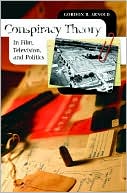Category Books
- Fiction Books & Literature
- Graphic Novels
- Horror
- Mystery & Crime
- Poetry
- Romance Books
- Science Fiction & Fantasy
- Thrillers
- Westerns
- Ages 0-2
- Ages 3-5
- Ages 6-8
- Ages 9-12
- Teens
- Children's Books
- African Americans
- Antiques & Collectibles
- Art, Architecture & Photography
- Bibles & Bible Studies
- Biography
- Business Books
- Christianity
- Computer Books & Technology Books
- Cookbooks, Food & Wine
- Crafts & Hobbies Books
- Education & Teaching
- Engineering
- Entertainment
- Foreign Languages
- Game Books
- Gay & Lesbian
- Health Books, Diet & Fitness Books
- History
- Home & Garden
- Humor Books
- Judaism & Judaica
- Law
- Medical Books
- New Age & Spirituality
- Nonfiction
- Parenting & Family
- Pets
- Philosophy
- Political Books & Current Events Books
- Psychology & Psychotherapy
- Reference
- Religion Books
- Science & Nature
- Self Improvement
- Sex & Relationships
- Social Sciences
- Sports & Adventure
- Study Guides & Test Prep
- Travel
- True Crime
- Weddings
- Women's Studies
Conspiracy Theory in Film, Television, and Politics »

Authors: Gordon B. Arnold
ISBN-13: 9780275994624, ISBN-10: 0275994627
Format: Hardcover
Publisher: Greenwood Publishing Group, Incorporated
Date Published: September 2008
Edition: (Non-applicable)
Author Biography: Gordon B. Arnold
GORDON B. ARNOLD is Professor of Liberal Arts at Montserrat College of Art in Beverly, Massachusetts, where he has taught courses in film, media, and politics for many years. He was previously a reference librarian and library director at public and academic libraries. His publications include the book The Politics of Faculty Unionization (2000), as well as articles in Library Journal, Change, and Labor Studies Journal.
Book Synopsis
Since the assassination of John F. Kennedy, motion pictures and television productions-some based on historical fact and conjecture, others clearly fanciful-have embraced the idea that conspiracies shape many events, hide others, and generally dictate much of the course of modern life, often to the disadvantage of the average person. As a result, conspiracy theories have developed into a potent undercurrent in American politics. By the 1990s, it was not unusual to find conspiracies used as explanations for a wide range of political events that would otherwise seem to have quite ordinary explanations. Thus, a vast right-wing conspiracy was suggested as the source of Bill Clinton's troubles, just as conspiracy-like machinations of the liberal media were used to explain why the picture of world events did not coincide with conservative views. And this is to say nothing of the bitter arguments that still erupt over varying explanations for the attacks of 9/11.
Regardless of a person's opinion about such claims, what these and many other examples clearly show is that conspiracy-theory explanations have penetrated mainstream American thought. Here, author Gordon Arnold examines the evolution of this cultural climate in the United States. Conspiracy Theory in Film, Television, and Politics examines the intersection of various film and television productions in the context of unfolding political developments. The chapters follow this story chronologically, showing how screen media have both reflected and shaped the cultural milieu in which traumatic events and political controversies have been interpreted with increasing cynicism. The work also reviews the original contexts in which film, television, and political manifestations of conspiracy ideas first appeared.
Table of Contents
Ch. 1 Conspiracy Theory in the American Imagination
Ch. 2 The Red Menace and Its Discontents
Ch. 3 Conspiracy in the New Frontier
Ch. 4 Shock and Upheaval
Ch. 5 Scandal and Skepticism
Ch. 6 Vision and Re-Vision
Ch. 7 A New Age of Conspiracy
Ch. 8 Belief and Disbelief
Notes
Bibliography
Index
Subjects
 Television
Television  Television - General & Miscellaneous
Television - General & MiscellaneousNonfiction
 Social Sciences
Social Sciences  General & Miscellaneous
General & MiscellaneousNonfiction
 True Crime
True Crime  Assassinations & Conspiracies
Assassinations & ConspiraciesPolitical Books & Current Events Books
 United States Politics
United States Politics  U.S. Politics - General & Miscellaneous
U.S. Politics - General & MiscellaneousPolitical Books & Current Events Books
 All Politics
All Politics  General & Miscellaneous
General & MiscellaneousPolitical Books & Current Events Books
 All Politics
All Politics  United States Politics & Government
United States Politics & GovernmentScience & Nature
 Social Sciences
Social Sciences  General & Miscellaneous
General & MiscellaneousSocial Sciences
 General & Miscellaneous
General & Miscellaneous  Popular Culture Studies
Popular Culture StudiesSocial Sciences
 True Crime
True Crime  Assassinations & Conspiracies
Assassinations & ConspiraciesNonfiction
 Entertainment
Entertainment  Television
TelevisionNonfiction
 Politics & Current Affairs
Politics & Current Affairs  United States Politics
United States PoliticsNonfiction
 Politics & Current Affairs
Politics & Current Affairs  All Politics
All Politics
